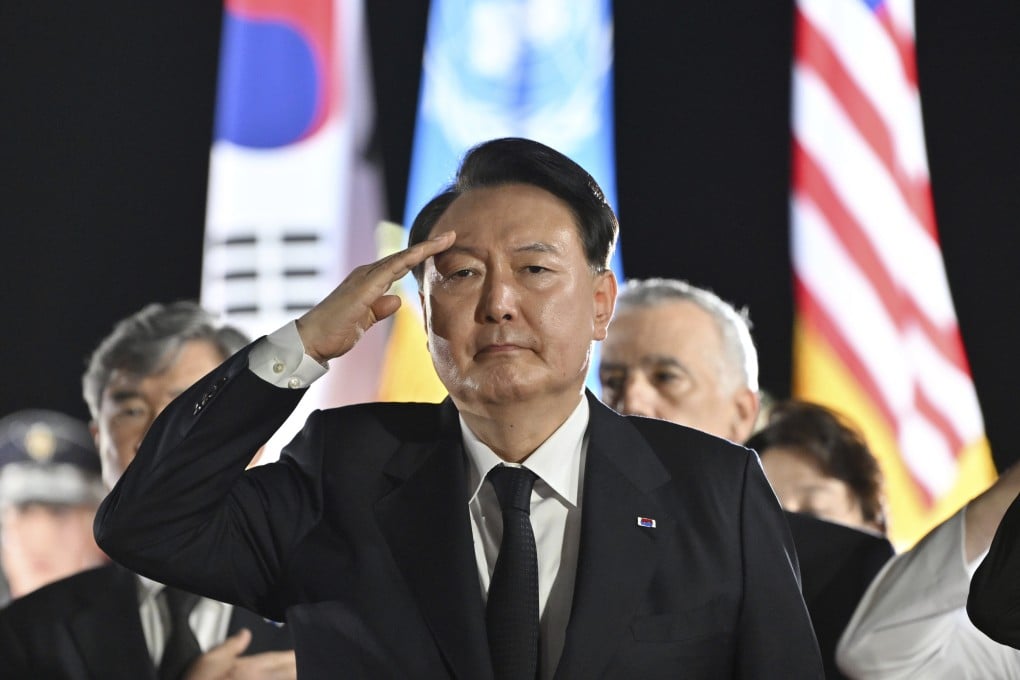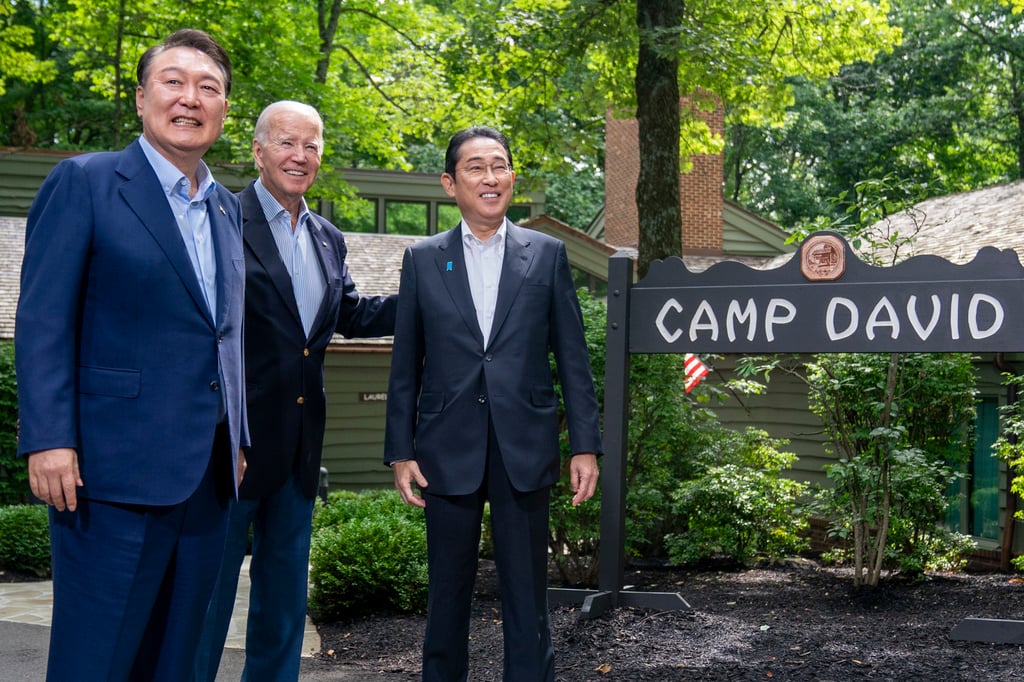Advertisement
Asian Angle | South Korea’s Yoon needs to convince voters choosing US over China won’t hurt economy
- President Yoon Suk-yeol has stepped up political and economic ties with the US amid a lacklustre domestic economy plagued by high unemployment
- His moment of political reckoning will arrive in April next year, when South Koreans head to the polls for midterm-style elections
Reading Time:4 minutes
Why you can trust SCMP
9

South Korean President Yoon Suk-yeol has introduced a profound shift in the country’s foreign policy, aligning it more closely with the United States. Yet this bold strategic redirection has not necessarily translated to an uptick in his domestic approval ratings.
Advertisement
Yoon – devoid of a foreign policy background – took office in 2022. Conventional wisdom suggested he would hone-in on domestic matters. Surprisingly, he charted a foreign policy course markedly different from South Korea’s immediate past, in a clear tilt towards the US.
Yoon’s foreign policy direction contrasts starkly with that of his predecessor, former president Moon Jae-in – whom Yoon labelled as “pro-China” in his public statements. Yoon once remarked that “most South Koreans, especially younger ones, don’t like China even though president Moon’s administration pursued pro-China policies”. He spelled out his stance to The New York Times in September last year, saying that “South Korea will take a clearer position with respect to US-China relations”.

Yoon was instrumental in orchestrating the recent US-Japan-South Korea trilateral summit at Camp David. That meeting would have been improbable without Yoon’s push for reconciliation with Japan – South Korea’s former coloniser.
Though the summit stopped shy of solidifying a formal military alliance, it resonated with the spirit embodied in Nato’s Article 5 – “an attack against one is an attack against all” – replacing “attack” with “threat”. Some suggested that the new security partnership might hold even more historic significance than the Aukus alliance. Meanwhile, the Global Times in China described the Camp David summit as possibly “a starting shot for a new Cold War”.
Yoon’s foreign policy is predicated on democratic values, advocating alliances rooted in shared ideals. He has identified Japan as “a partner sharing universal values”. Yoon’s administration has been forthright in condemning North Korea’s human rights infringements and China’s coerced repatriation of North Korean escapees.
Under Yoon’s stewardship, South Korea also took part in its first Nato summit and approved intermittent dockings by US nuclear submarines in South Korean ports as a deterrent to North Korea. South Korea endorsed the Camp David joint declaration which even explicitly calls out China by name, reproaching mainland China’s “dangerous and aggressive behaviour” in the South China Sea and reaffirming South Korea’s stance on Taiwan.
Advertisement

Advertisement
